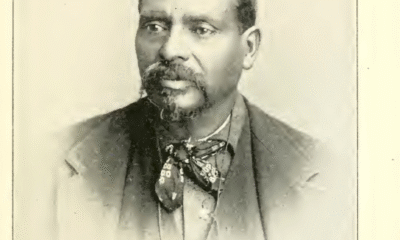News
In Senate Battle, Democrats Defy Biden’s Low Standing (for Now)
Published
4 years agoon

PHOENIX — In a Senate split 50-50, Democrats on the campaign trail and in Congress have zero margin for error as the party tries to navigate a hostile political environment defined chiefly by President Biden’s albatross-like approval ratings.
But with the Senate battlefield map mostly set after primaries in Arizona and Missouri this past week, Democratic candidates are outperforming Mr. Biden — locked in tight races or ahead in almost every key contest.
In Washington, Senate Democrats are racing to bolster their position, pressing for a vote as soon as Monday on a sweeping legislative package that represents their last, best sales pitch before the midterms to stay in power.
The history of midterms and unpopular presidents, however, is working against them. With the fall election less than 100 days away, the defining question of the struggle for the Senate is how long Democrats in crucial races can continue to outpace Mr. Biden’s unpopularity — and by how much.
“That’s the billion-dollar question,” said Robert Blizzard, a Republican pollster who has studied the pattern of how a president’s support has affected Senate races over the last decade. His findings: Precious few candidates can outrun the president by more than a half-dozen percentage points — a worrisome fact for Democrats when Mr. Biden’s approval has fallen below 40 percent nationally.
“The president’s approval rating acts as a weight on their party’s nominee,” Mr. Blizzard said. “Gravity is going to apply at some point.”
So far, Senate Democrats have been buoyed by a cash edge, some strong candidates and the fact that Republicans have nominated a series of first-time candidates — Herschel Walker in Georgia, Dr. Mehmet Oz in Pennsylvania, Blake Masters in Arizona — who have struggled to find their footing, have faced questions about their past and have generally been unable to keep the 2022 campaign focused on unhappiness with Democratic rule in Washington.
Republican strategists involved in Senate races, granted anonymity to speak candidly, say that those three candidates — all of whom were endorsed by Donald J. Trump in the primaries — are falling short of expectations.
Democratic strategists hope the domestic package of climate and tax policies they are aiming to push through Congress, along with the Supreme Court’s decision to overturn Roe v. Wade, could reinvigorate a demoralized party base that is particularly displeased with Mr. Biden. But Republicans insist that passage of major legislation, as happened with the 2010 Affordable Care Act, could galvanize their side as well and could further intertwine Democratic senators with Mr. Biden in the minds of voters.
The race for control of the Senate is occurring chiefly in more than a half-dozen presidential swing states, making Mr. Biden’s approval ratings all the more relevant. Republicans need to pick up only a single seat to take control, and four incumbent Democrats face tough races. Three Republican retirements have created opportunities for Democrats, and one Republican senator is running for re-election in Wisconsin, a state that Mr. Biden won narrowly.
On Tuesday, Republicans scored one success, averting disaster in Missouri when voters rejected the comeback Senate bid of Eric Greitens, the scandal-plagued former governor, in favor of Eric Schmitt, the state attorney general, who is now considered the heavy favorite.
In the best-case scenario for Democrats, they maintain control or even net a couple of seats if the environment shifts; in the worst case, support for Mr. Biden collapses, and Democrats lose roughly half a dozen seats, including some in bluer states like Colorado and Washington.
Understand the Aug. 2 Primary Elections
While the Trump wing of the Republican Party flexed its muscle, voters in deep-red Kansas delivered a loud warning to the G.O.P. on abortion rights.
For now, Republicans see Mr. Biden as their not-so-secret weapon. Some ads are literally morphing Senate Democrats’ faces into his, part of a brutal planned blitz of ads to yoke incumbents to their pro-Biden voting records.
“What we call the 97 percent club — that they voted for this 97 percent of the time,” said Steven Law, who leads the main Senate Republican super PAC, which has $141 million in television ads reserved this fall.
With a strong job report on Friday, long-stalled legislation moving and gas prices on the decline — albeit from record highs — it is possible that Mr. Biden’s support could tick upward.
In contrast to the House, where Republicans have gleefully been talking up a coming red wave, Senator Mitch McConnell of Kentucky, the Republican leader, has sounded more like a trench warfare general, lowering expectations Wednesday on Fox News.
“When the Senate race smoke clears, we’re likely to have a very, very close Senate still, with either us up slightly or the Democrats up slightly,” he said.
In the four states with the most vulnerable Democratic incumbents — Arizona, Georgia, Nevada and New Hampshire — survey data from Morning Consult shows a breathtaking decline in Mr. Biden’s approval ratings since early 2021. His net approval ratings in those states have plunged by 27, 20, 27 and 24 percentage points. Yet all four Democratic senators maintain their own favorable ratings.
“Voters are dealing with the Democratic candidates separately from President Biden,” said Geoff Garin, a Democratic pollster. “We see the incumbents’ ratings going up even in places where the president’s numbers are going down, which is a very unusual midterm dynamic.”
The summer of ‘bed-wetting’
Some Democrats in the most competitive races have also developed unique brands that could protect them.
In Arizona, Senator Mark Kelly is a former astronaut and the husband of former Representative Gabby Giffords, who survived a shooting in 2011. In Georgia, Senator Raphael Warnock, who utilized an affable beagle in his last race, is well known as the pastor of Atlanta’s historic Ebenezer Baptist Church. In Pennsylvania, the Democratic nominee is John Fetterman, the 6-foot-8, tattooed lieutenant governor, who has leaned into his not-your-typical-politician look.
“The Democrats do have some good candidates,” conceded Corry Bliss, a veteran Republican strategist. “But the key point is very simple: If Joe Biden has an approval rating in the 30s, what Raphael Warnock says or does is irrelevant. Because he’s going to lose. Period.”
Republicans, Mr. Bliss said, were suffering through a cyclical “summer of bed-wetting” before a fall landslide.
But some Republicans worry that their party has picked some worse-than-generic nominees in important states.
Mr. Walker, a former football star who avoided primary debates, has been dogged in Georgia by his past exaggerations and falsehoods about his background, as well as the emergence of children he fathered with whom he is not in regular contact. A team of national operatives has been dispatched to steady his campaign.
Dr. Oz, the television personality, has struggled to consolidate Republican support after a bruising primary as Democrats hammer his recent New Jersey residency. Polls show Mr. Fetterman ahead, even though he has not held a public event since a stroke in mid-May.
Mr. Fetterman’s campaign has shifted its efforts almost entirely online, where Dr. Oz’s campaign has ceded the digital terrain when it comes to paid ads. Since May 1, Dr. Oz has spent $0 on Facebook and about $22,000 on Google; Mr. Fetterman has spent roughly $1 million in that time, company records show.
Still, the political environment has Republicans bullish on holding Senate seats in North Carolina and Florida. And in Wisconsin, where Senator Ron Johnson is up for re-election, the party sees Lt. Gov. Mandela Barnes, for whom Democrats just cleared their primary field, as overly liberal for the state.
Some are even hopeful that Washington and Colorado could emerge as competitive. In the latter state, Democrats spent millions of dollars unsuccessfully trying to prevent Joe O’Dea, a moderate businessman, from becoming the Republican nominee.
“I appreciate the advertising,” Mr. O’Dea said in an interview. “It got my name recognition up.”
The 2022 dynamics in the desert
Nowhere are the Senate dynamics clearer than in Arizona, a state Mr. Biden flipped in 2020 but where polls show he is now unpopular.
Even before Mr. Masters won the Republican nomination on Tuesday, he had set out to tie Mr. Kelly to Mr. Biden. In a speech to a pro-Trump gathering in downtown Phoenix on Monday, Mr. Masters slashed at Mr. Kelly’s moderate reputation and blamed him for approving spending that “caused this inflation.”
“What Biden and Harris and Mark Kelly are doing to this country — it makes me sick,” Mr. Masters said.
Mr. Kelly, though, has used his financial advantage — he had $24.8 million in the bank as of mid-July compared with $1.5 million for Mr. Masters — to run television ads for months positioning himself as a get-things-done centrist who whacks oil companies and his own party alike.
And in Mr. Masters, Republicans have a 36-year-old nominee who faces questions about his past comments and positions, including calling a notorious domestic terrorist, the Unabomber, an underrated thinker; questioning the United States’ involvement in World War II; and expressing openness to privatizing Social Security in a retiree-filled state.
A recent poll for the super PAC supporting Mr. Masters showed that a majority of voters strongly disapproved of Mr. Biden; Mr. Masters trailed by five percentage points.
The survey suggested that Mr. Kelly’s chief vulnerability was his perceived proximity to Mr. Biden’s agenda, though the Masters campaign will most likely need outside groups to pay to make that case.
“I’ve got to raise money,” Mr. Masters said in a brief interview this week. “But what I’ve really got to just do is tell the truth. Tell the truth about his far-left voting record.”
Andy Surabian, a Republican strategist advising a super PAC supporting Mr. Masters, suggested that focusing on Democrats was going to be critical for all Republicans. “You’re going to see all the incumbent Democrat senators who vote with Biden nearly 100 percent of the time get ruthlessly tied to those votes,” he said.
But Christina Freundlich, a Democratic consultant, said the “messier” slate of Republicans like Mr. Masters was making the 2022 campaign about both parties.
Ms. Freundlich, who worked on Terry McAuliffe’s unsuccessful bid for Virginia governor last year against Glenn Youngkin, a vest-clad Republican businessman, said the newly elevated Senate G.O.P. candidates were no Glenn Youngkins: “They have a lot more fringe views.”
Mr. Law, the Republican super PAC leader, said his group would re-evaluate the Senate landscape throughout August, looking for candidates with “enough money to connect directly with voters — and message discipline to focus on the issues that resonate.”
“Not every candidate can do that,” he said pointedly.
His group has booked $51.5 million in Arizona and Georgia television ads starting in September, though Mr. Law did not commit to those full reservations. “We have more time to assess both of those,” he said, raising questions about the Masters campaign by dint of omission. “In Georgia, in particular, I’m seeing very positive signs of developments in the Walker camp.”
As in Georgia, national operatives are now reinforcing the Masters team, including a new general consultant as well as polling and media teams.
Shane Goldmacher reported from Phoenix, and Maggie Haberman from New York.
Read the full article here
A journalist since 1994, he also founded DMGlobal Marketing & Public Relations. Glover has an extensive list of clients including corporations, non-profits, government agencies, politics, business owners, PR firms, and attorneys.

Business
My ancestors were full-blooded Indians … until the census said otherwise
Published
6 months agoon
August 17, 2025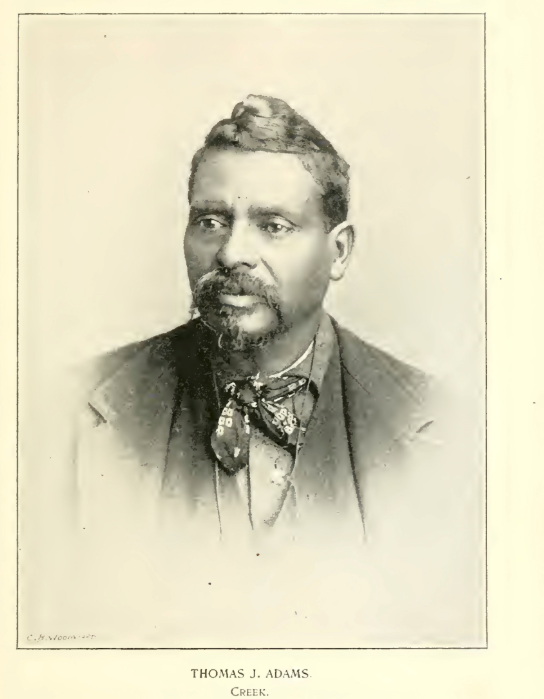
(OKLAHOMA – August 17, 2025) – When I first started researching my family’s genealogy, I thought I was just going to fill in a few blanks.
Instead, I uncovered a lie so deep, so systematic, it reshaped everything I thought I knew about who we are as a people.
I want to show you something personal.
Below, you’ll see two official U.S. government records—both documenting one of my direct ancestors. Thomas Jefferson Adams Harjo.
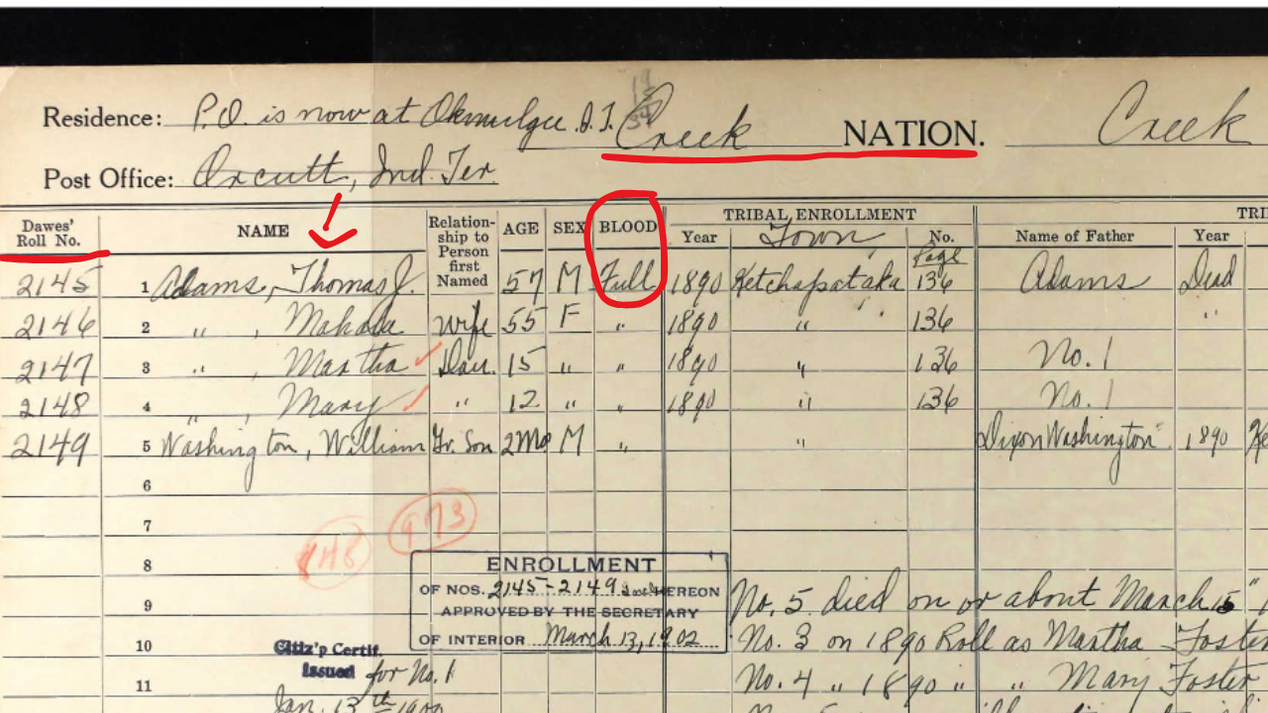
Creek Nation certificate
📜 The first is from the Dawes Roll, the federal list created in the early 1900s to register members of the Five Civilized Tribes.
As you’ll see, my ancestor is listed as a Full-Blood Indian—a clear acknowledgment of their tribal heritage and cultural identity.
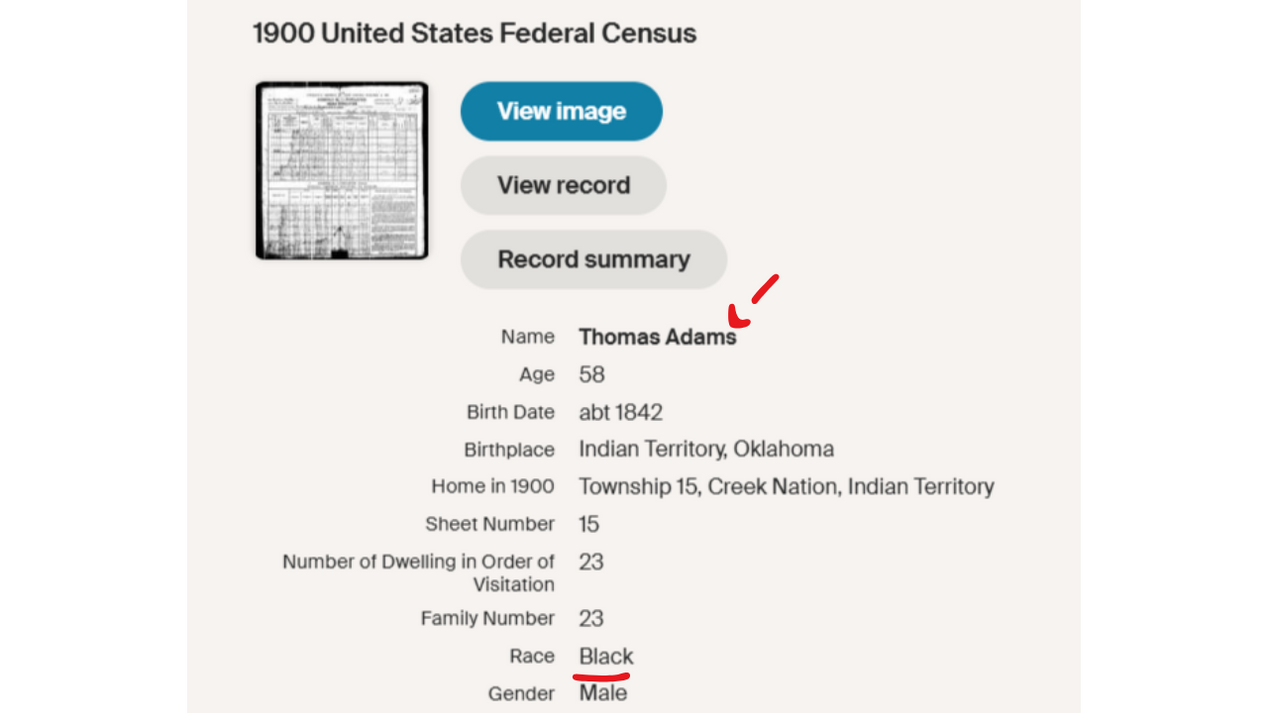
1900 US Census
But then, take a look at the second image:
📄 That’s the federal census record from just a few years later.
Same ancestor.
Same location.
But this time, the government marked them as Negro.
No tribe. No Indian classification.
Just folded into the general Black population—without consent, without explanation.
That wasn’t a mistake.
That was paper genocide.
This is what happened to millions of Indigenous Black Americans across the South.
Their identities were stripped away on paper—one document at a time—by a system designed to erase, absorb, and exploit.
This wasn’t just about racism. It was about land, power, and control.
By reclassifying tribal people as Negro or Colored, the government could:
-
Deny them land rights
-
Remove them from tribal rolls
-
Steal their inheritance
-
And make sure future generations never knew who they really were
This is why so many of our elders say, “My grandma said we had Indian in us.”
They weren’t lying.
They just didn’t have the tools to prove it.
Now we do.
And I’m not showing you this to just share my story—I’m showing you because this might be your story, too.
If you’re ready to go deeper, tomorrow I’m going to pull back the curtain on how far this went—how the reclassification of Black Indians was not an exception, but the rule across the Southeast.
You’re not crazy.
You’re not reaching.
You’re remembering.
—Mike
Founder, Native Black Ancestry
News
Voices of West Tampa: District 5 Special Election Forum, Aug. 27th
Published
6 months agoon
August 12, 2025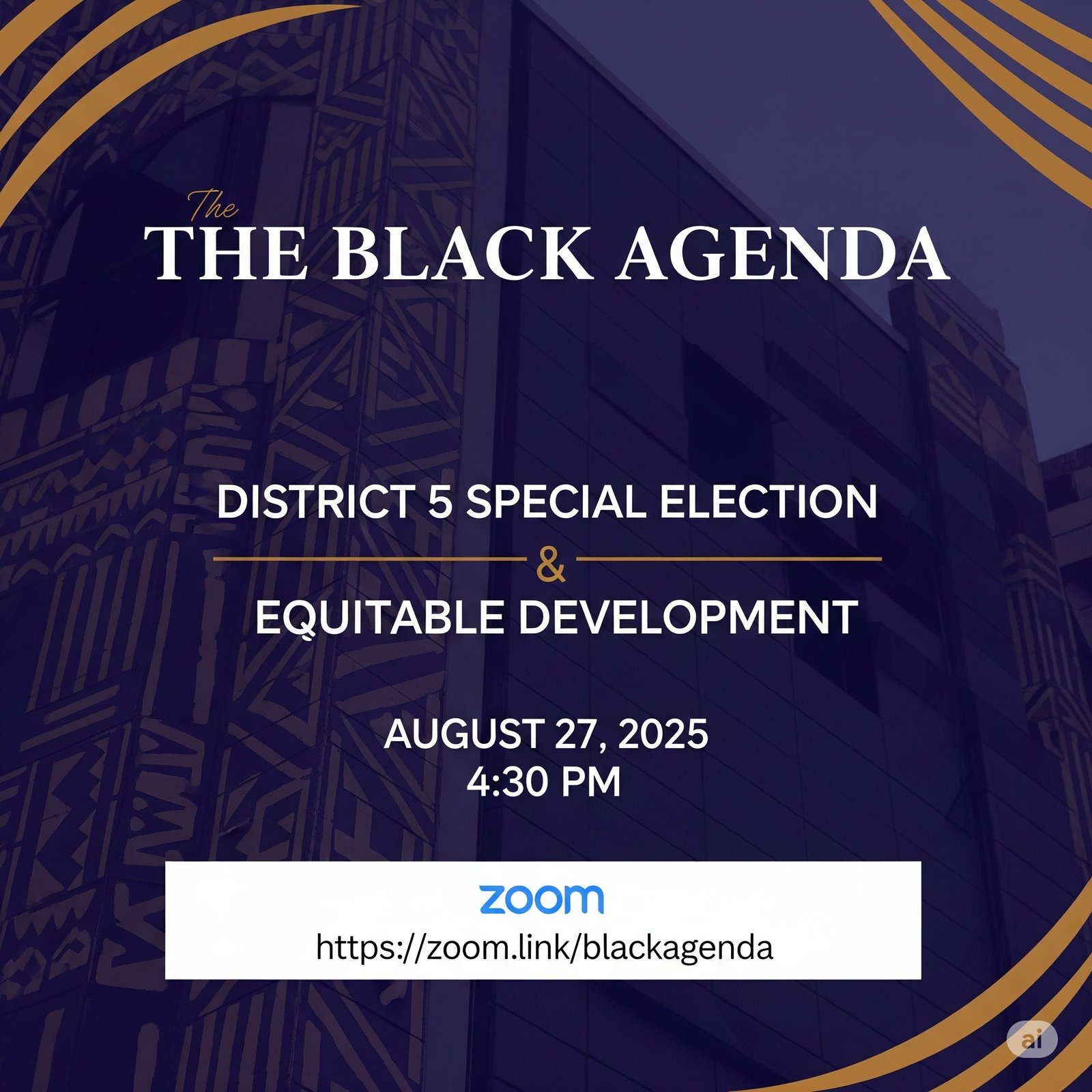
(TAMPA, FL – August 12, 2025) – The Black Agenda is coming! Join us this August for a powerful virtual town hall where residents, neighborhood associations, nonprofit leaders, faith communities, and other key stakeholders will come together to share their concerns and discuss solutions.
![]() This event will be streamed live and will feature candidates offering their vision for the future of West Tampa.
This event will be streamed live and will feature candidates offering their vision for the future of West Tampa.
This will be a street-level, bottom-up dialogue—focused on real voices, real stories, and real strategies to protect and uplift our community.
https://us02web.zoom.us/…/register/n2MwP53TQ-2e9xfih1rrAg

Join us this August for a powerful virtual town hall.
News
From Illinois to Texas, CTU President Stacy Davis Gates Leads Largest African American Parade in the Country Amid National Education and Democracy Attacks
Published
6 months agoon
August 8, 2025
(CHICAGO – August 8, 2025) – This Saturday, internationally recognized labor leader and Chicago Teachers Union President Stacy Davis Gates will serve as an Honorary Marshal at the 96th Annual Bud Billiken Parade, the largest African American parade in the United States.
Why Does This Matter?
- Back To School: As families nationwide prepare for the academic year, the Chicago Teachers Union will usher it in by continuing the call for Chicago’s 300,000+ students to have the schools they deserve.
- Texas: State-level fights over education and democracy in Illinois resonate across the nation. Illinois is currently hosting Texas Democratic leaders who are fighting shared policy battles including public education funding and labor protections.
- National Relevance: The Chicago Teachers Union is one of the most powerful teachers’ unions in the country. When America catches a cold, Chicago catches the flu, but its leaders continue to push back on attacks against equality and opportunity. It is the third-largest local teachers union in the country and the largest local union in Illinois.
“DOGE already happened in Chicago. Our public school system was ravaged by the types of policies that are being implemented at the federal level right now: summarily firing female workers, Black female workers from the schools; closing schools—Rahm Emanuel closed fifty of them.” – Stacy Davis Gates (May 2025)
________________________________________________
About Stacy Davis Gates
- A working mother and high school social studies teacher.
- Led the historic 2019 CTU strike, securing smaller class sizes, sanctuary protections for immigrant students and the right to teach Black history.
- Raised millions to elect pro-education and pro-worker candidates including Mayor Brandon Johnson and fought for equitable school funding.
- Serves as Executive Vice President of the Illinois Federation of Teachers, Vice President of the American Federation of Teachers, Party Chair of United Working Families, and board member of the Action Center on Race & the Economy (ACRE).
- Is one of the next-generation labor leaders that you are going to want to get to know. She is going to help define what union leadership looks like in the coming years.

Stacy Davis Gates

Remember Who You Are: The Indigenous Series 📱

Remember Who You Are: The Indigenous Series

Indigenous Series: Reclaiming Our Legacy 📱

Indigenous Series: Reclaiming Our Legacy

Indigenous Series: Save Our Legacy

Remember Who You Are: The Indigenous Series

Remember Who You Are: The Indigenous Series 📱

Indigenous Series: Reclaiming Our Legacy

Indigenous Series: Reclaiming Our Legacy 📱

Indigenous Series: Save Our Legacy 📱
Newsletter
Subscribe to our newsletter to get the latest news directly to your inbox.
